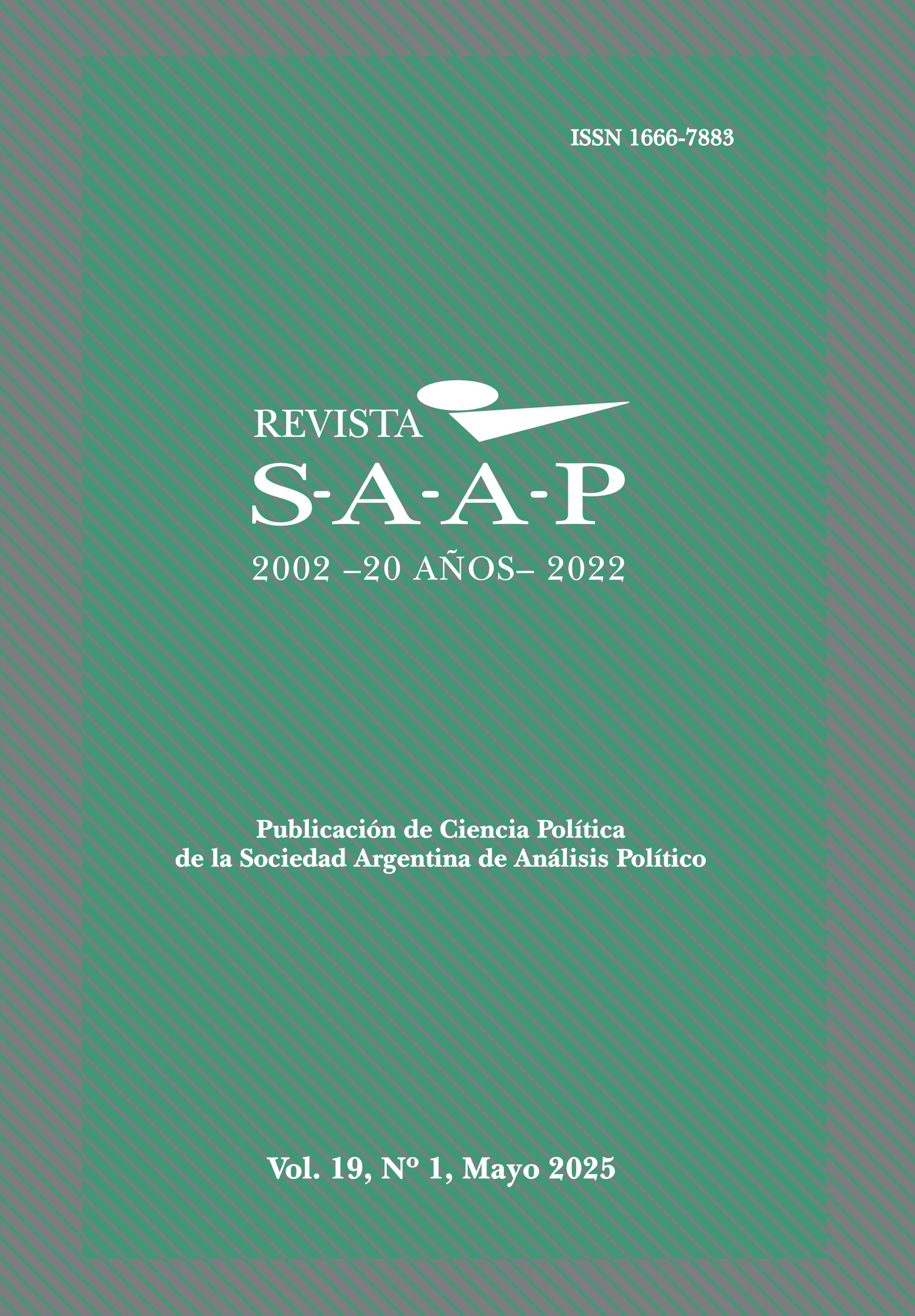Polarization in a country with low polarization. Social media and political elites in Uruguay
DOI:
https://doi.org/10.46468/rsaap.19.1.a4Keywords:
Political Polarization, Social Media, Uruguay, Political Elites, Public DebateAbstract
Uruguay has historically been characterized as a country of political consensus, making it a key case for examining the relationship between the widespread use of social media and rising political polarization. This article explores how Uruguay’s political-institutional elites interact on Twitter/X. The findings reveal strong partisan homophily and a clear division between the ruling Republican Coalition and the opposition Frente Amplio, although there are communicating vessels between the two communities. Using a positional methodology, the study shows that institutional hierarchies are replicated and maintained on social media, though accompanied by segmentation dynamics that contrast with the country’s tradition of political dialogue. Even within this “buffer society,” digital communication fosters more polarized relationships, raising important challenges for rethinking the relationship between politics and communication in contemporary democracies.
Downloads
Published
Issue
Section
License
Copyright (c) 2025 Iván Schuliaquer, Federico Beltramelli, Josep Lluís Micó-Sanz, Verónica Israel-Turim

This work is licensed under a Creative Commons Attribution-NonCommercial-ShareAlike 4.0 International License.
It is a condition for publication that the author or authors assign the reproduction rights to the journal, as well as the right to be the first place of publication of the article.
Articles published by Revista SAAP are distributed under a License CREATIVE COMMONS 4.0 ATRIBUCIÓN-NO COMERCIAL-COMPARTIRIGUAL INTERNACIONAL(CC BY-NC-SA 4.0) that allows third parties to use what is published, as long as the authorship of the article and the first publication in this journal is mentioned. Authors retain copyright.
Authors should carefully consider the list and order of authors before submitting their manuscript. Any addition, deletion or rearrangement of authors' names in the authorship list should be made only before the manuscript has been accepted and only if approved by the Director of the journal.
In case of allegations of scientific misconduct or conflict of interest, authors should send a letter to the Director of the journal explaining the case to REVISTA@SAAP.ORG.AR.






